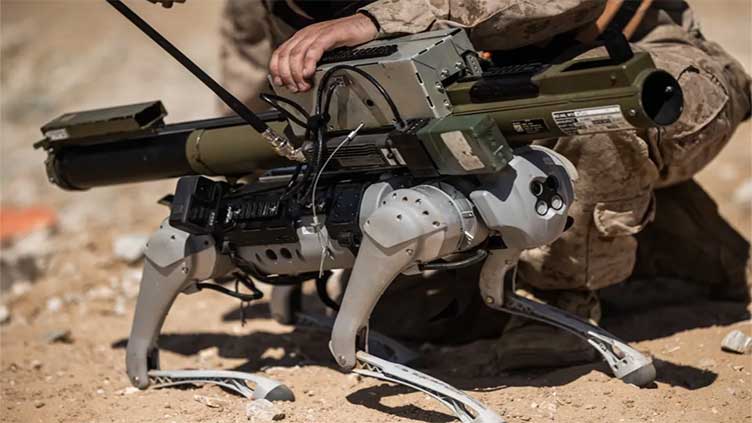US Army testing robots, predicts humanoids could fight as early as 2030

Technology
We are largely thinking about the timespan between 2030 and 2040
(Web Desk) - A colonel from the US Army has revealed a timeframe for when augmented humans and humanoids could be used effectively in warfare.
Colonel Troy Denomy was speaking at the South by Southwest conference in Austin, Texas.
“We are largely thinking about the timespan between 2030 and 2040," he told an audience.
Denomy was speaking as part of a panel at the conference called Humanoids or Augmented Humans: Accelerating Autonomy with AI.
Several concerns were raised during the talk about the dangers of the army using AI and robots.
"Make sure the robot is working for the human and the human is not working for the robot," Denomy said.
He wants this to be the case before army robots are taken out of their test phase.
The colonel gave an example of a recent robot test, which left some of the human platoon feeling like the robots were in control.
"We recently did a demonstration on some robotic capability and we’re doing another demonstration in a few weeks," Denomy said.
“The leaders in that platoon had about 27 remotes hanging off their neck trying to control individual robots.”
Denomy and the panel agreed that menial tasks like using multiple remotes to control one gadget need to be automated before the army can progress with robotics.
“What I described with the controllers, arguably humans are working for the robots. So we got to revert that," he added.
Denomy gave some examples of gadgets already enhancing the army including special smartphones and adapted drones.
Late last year, the Marines also tested out robot dogs with M72 rocket launcher attached.
The panel highlighted that the Department of Defense has signed a policy to make sure a human is always involved somewhere in the process when it comes to the use of AI and robotics.
Denomy stressed the need for humans to participate in the process.
"I think the days of a machine being able to understand ethics is a long way away," he warned.


